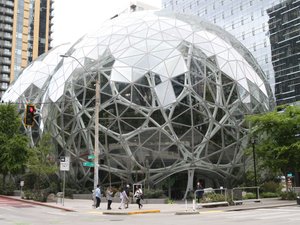
Even if someone wants to launch a startup, not every recently unemployed tech worker ends up on equal footing. A variety of hurdles stand in the way of would-be founders launching a startup. Here are a few things to consider:
Visas: Laid-off workers on an H-1B visa, or a specialty occupation visa, have 60 days to find new employment before having to leave the country. Although workers can get a visa by launching their startup, getting a company off the ground in 60 days is a tall order.
Tahmina Watson, founding attorney of Watson Immigration Law, said immigrant founders need to prove their investors have successful products or track records, yet another hurdle. According to a Bloomberg analysis, Amazon, Lyft, Meta, Salesforce, Stripe and Twitter have sponsored at least 45,000 H-1B visa workers over the last three years.
“The policies with immigration do need some tweaking. People who need that policy solution are afraid to speak,” Watson said. “We need us as the ecosystem to really push the government.”
Dried-up venture capital funding: While the market might be pushing some to launch startups, those same forces could be repelling others. When venture capital activity was red-hot in 2020 and 2021, many startups hit inflated values that appealed to would-be founders.
Last year, however, venture capital investments in the Seattle area declined 28% year over year, according to a recent report from Telstra Ventures.
“Long gone are the days of coming to market with an idea and a co-founder and getting a $15 million valuation at the pre-seed stage,” Sternbach said. “That certainly gives some founders pause. Up to a year ago, soon-to-be entrepreneurs and founders would have this mindset of what they would see in TechCrunch or other tech publications.”
Noncompetes: In the state of Washington, employers can only make employees earning over $116,593 or contractors making over $291,483 per year sign noncompetes. Microsoft last year said it wouldn’t use noncompetes moving forward or enforce most existing ones. The Federal Trade Commission, meanwhile, has proposed a ban on noncompetes, but the rule change is facing opposition.








